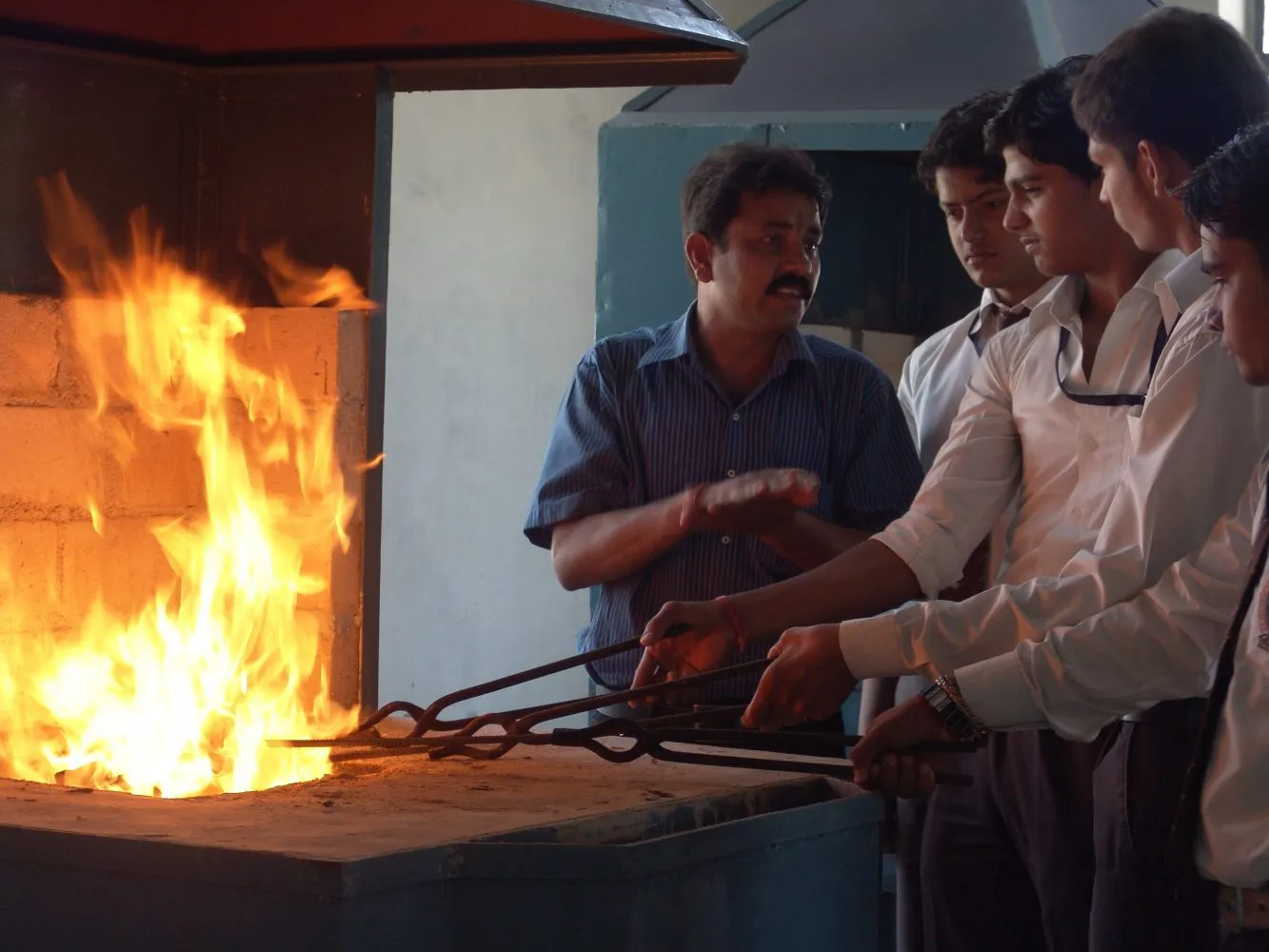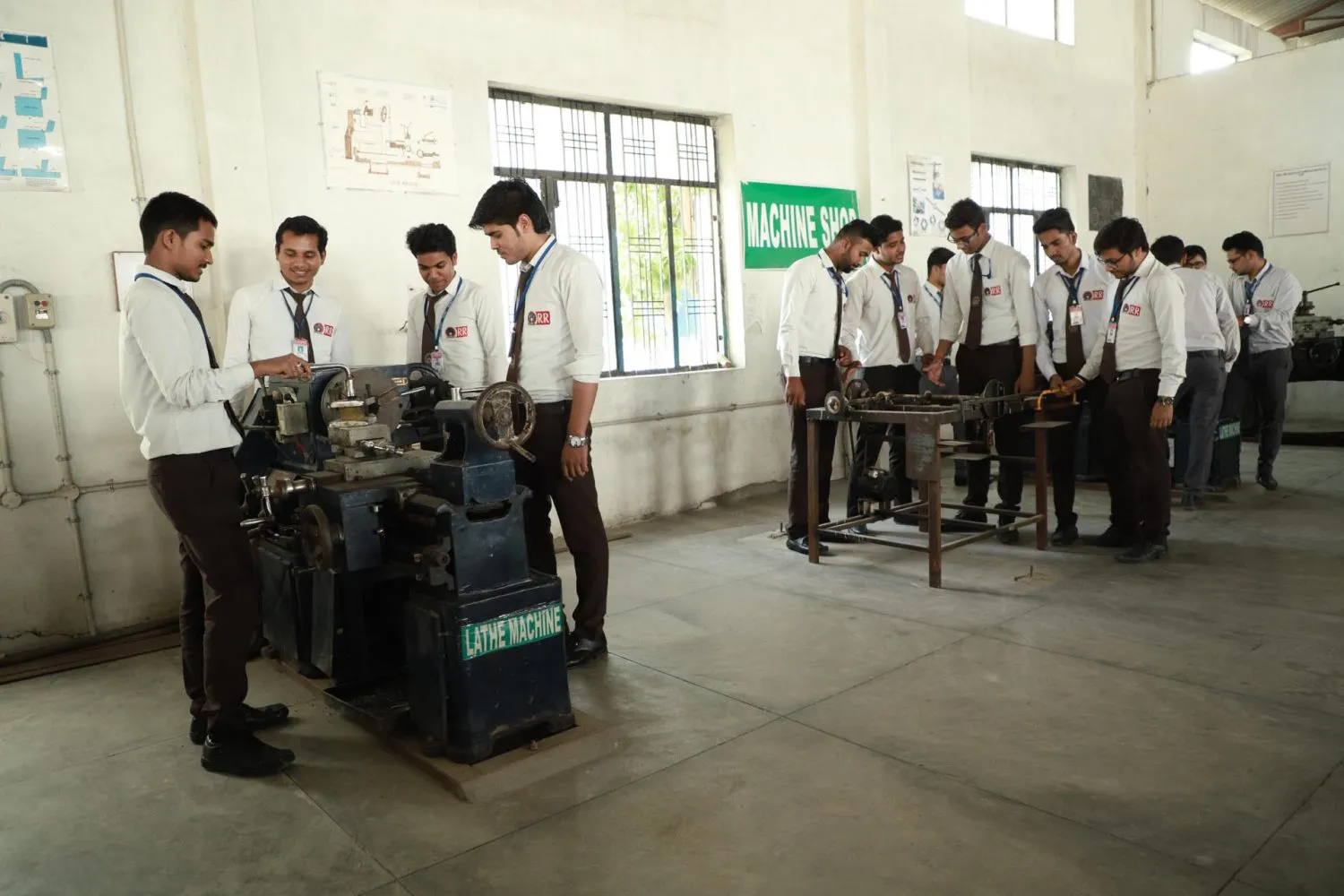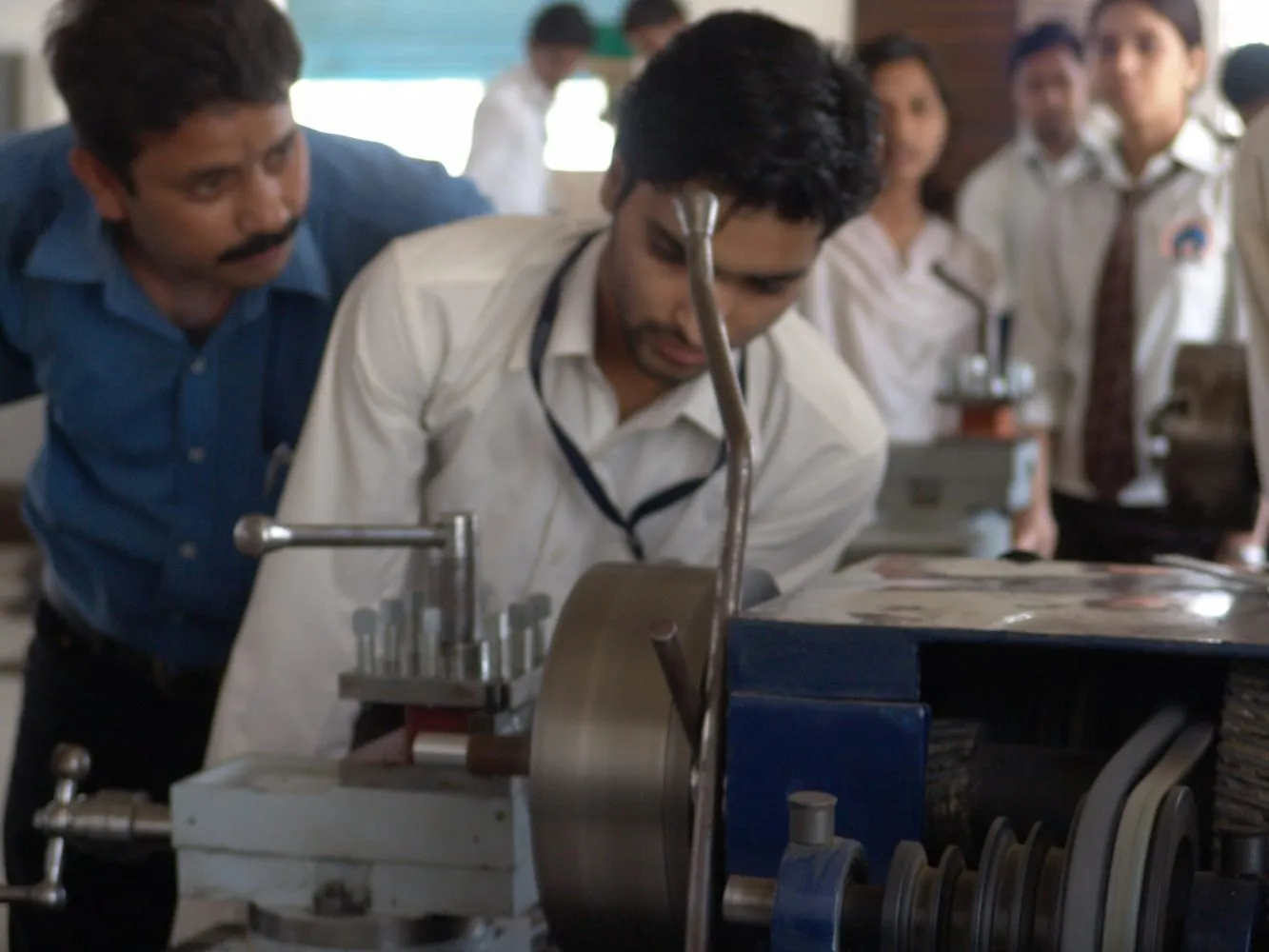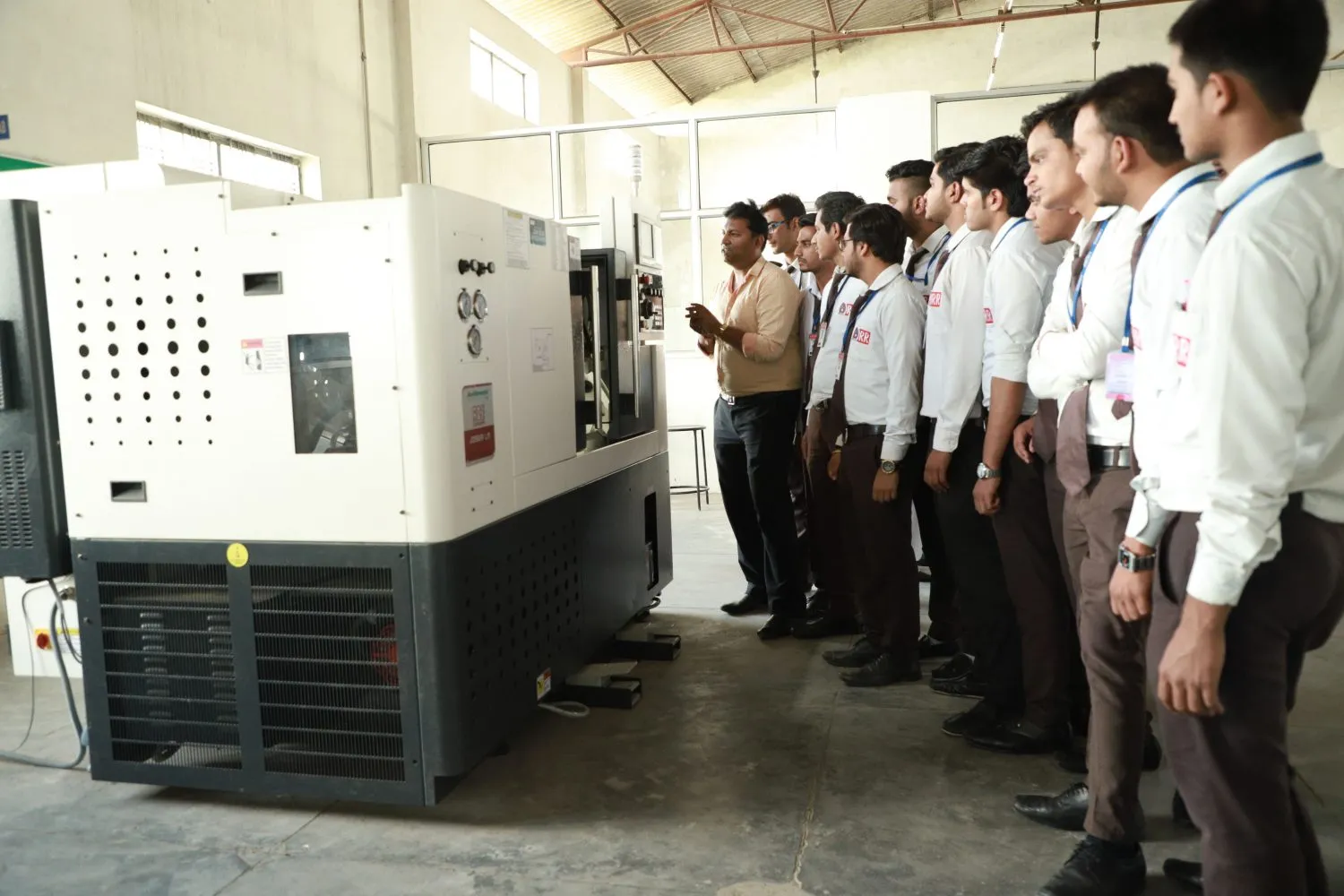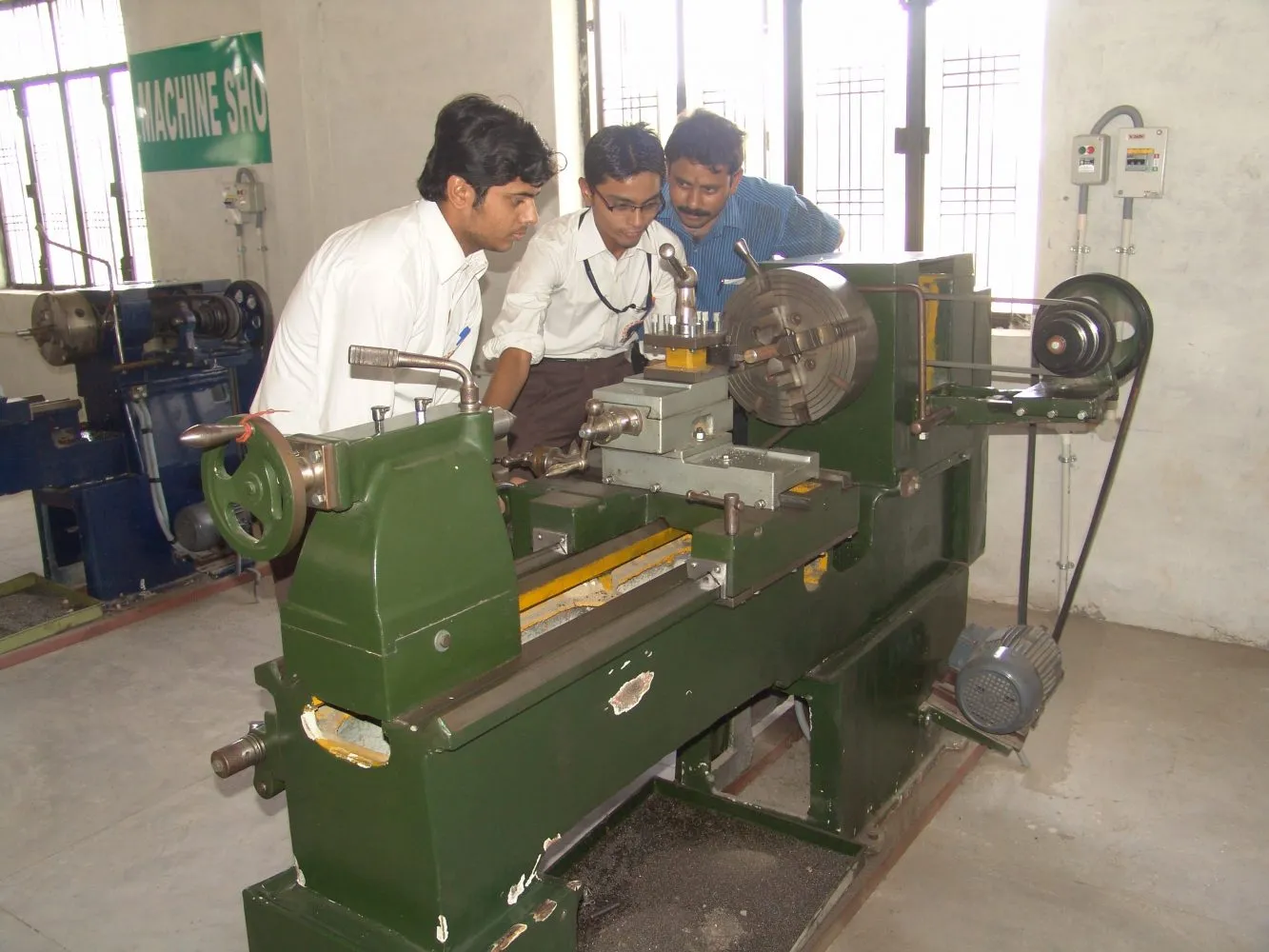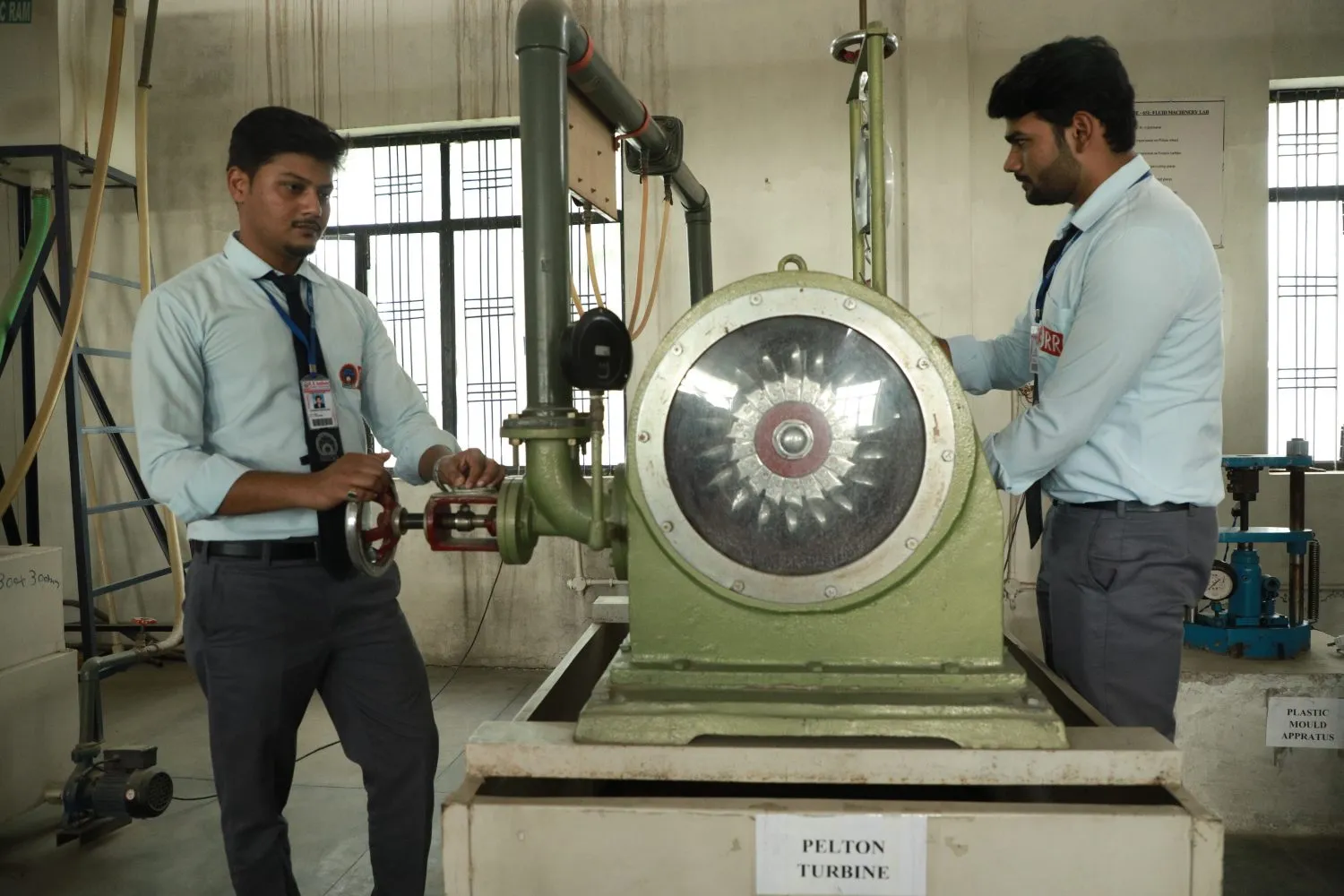echanical engineering is one of the oldest and broadest engineering disciplines. It applies the principles of physics and material science for analysis, design, manufacturing and maintenance of mechanical systems. Mechanical engineers use the core concepts of engineering like mechanics, kinematics, thermodynamics, material science and structural analysis along with the tools like computer aided engineering and product life cycle management to design and analyze manufacturing plants, industrial equipment and machinery, heating and cooling systems, transport systems, aircraft, watercraft, robotics, medical devices and more.
Vision
To provide highly competent and efficient mechanical engineers to meet the ever-changing needs of the industry, society and nation with incorporation of professional skills and ethical values.
[/mk_blockquote]
Mission
- To develop an atmosphere with efficient teaching and learning process along with multidisciplinary approaches to face technical challenges.
- Motivate the students to pursue higher education and excel in professional and entrepreneurial career.
- To establish institute-industry interaction for practical exposure and to gain an instinct of real life problems.
- Inculcate leadership skills with ethical values and spirit of teamwork.
[/mk_custom_list]
Program Educational Objectives (PEOs)
- Graduates will be able to apply their knowledge of mechanical engineering to solve real-world engineering problems.
- Graduates will have incumbent sense of leadership and communication skills to work individually as well as in team.
- Graduates will be competent to tackle complex problems of mechanical engineering along with professional ethics and passion for lifelong learning.
Program Outcome (POs)
Apply the knowledge of mathematics, science, engineering fundamentals, and an engineering specialization to the solution of complex engineering problems.
Identify, formulate, review research literature, and analyse complex engineering problems reaching substantiated conclusions using first principles of mathematics, natural sciences, and engineering sciences.
Design solutions for complex engineering problems and design system components or processes that meet the specified needs with appropriate consideration for the public health and safety, and the cultural, societal, and environmental considerations.
Use research-based knowledge and research methods including design of experiments, analysis and interpretation of data, and synthesis of the information to provide valid conclusions.
Create, select, and apply appropriate techniques, resources, and modern engineering and IT tools including prediction and modelling to complex engineering activities with an understanding of the limitations.
Apply reasoning informed by the contextual knowledge to assess societal, health, safety, legal and cultural issues and the consequent responsibilities relevant to the professional engineering practice.
Understand the impact of the professional engineering solutions in societal and environmental contexts, and demonstrate the knowledge of, and need for sustainable development.
Apply ethical principles and commit to professional ethics and responsibilities and norms of the engineering practice.
Function effectively as an individual, and as a member or leader in diverse teams, and in multidisciplinary settings.
Communicate effectively on complex engineering activities with the engineering community and with society at large, such as, being able to comprehend and write effective reports and design documentation, make effective presentations, and give and receive clear instructions.
Demonstrate knowledge and understanding of the engineering and management principles and apply these to one’s own work, as a member and leader in a team, to manage projects and in multidisciplinary environments.
Recognize the need for, and have the preparation and ability to engage in independent and life-long learning in the broadest context of technological change.
PROGRAM SPECIFIC OUTCOME (PSOs)
- The ability to acquire skill sets in the streams of environment, energy, thermo-dynamics, design, manufacturing and industrial engineering to cater societal needs.
- The ability to prepare the students for building their career in field of Mechanical Engineering, pursue higher studies and use their entrepreneurial capability to solve interdisciplinary problems.
FACULTY OF AGRICULTURAL ENGINEERING
SANDEEP KUMAR
ASST PROFESSOR
M.Tech.
MOHD FAIZUL HASAN
ASST PROFESSOR
M.Tech.
KARUNESH BAHADUR
ASST PROFESSOR
M.Tech.
VINOD KUMAR
ASST PROFESSOR
M.Tech.
DEVENDRA SINGH CHAUHAN
ASST PROFESSOR
M.Tech.
GAURAV KUMAR SHUKLA
ASST PROFESSOR
M.Tech.
MAHESHWAR DAYAL GUPTA
ASST PROFESSOR
M.Tech.
VIRENDRA KUMAR YADAV
ASST PROFESSOR
M.Tech.
JITENDRA GUPTA
ASST PROFESSOR
M.Tech.
SANDEEP KUMAR CHAUHAN
ASST PROFESSOR
M.Tech.
KUNWAR DIGAMBER SINGH
ASST PROFESSOR
M.Tech.
FAIZAN AHMAD
ASST PROFESSOR
M.Tech.
MULAYAM KUMAR
ASST PROFESSOR
M.Tech.
NIHARIKA MISHRA
ASST PROFESSOR
M.Tech.
VINAY KUMAR SHUKLA
ASST PROFESSOR
M.Tech.
MAYANK SHARMA
ASST PROFESSOR
M.Tech.
PANKAJ KUMAR SHARMA
ASST PROFESSOR
M.Tech.
ASHISH KUMAR
ASST PROFESSOR
M.Tech.
SCOPE OF MECHANICAL ENGINEERING
Mechanical Engineers are required in all manufacturing facilities. The working criteria of a mechanical engineer changes according to the type and domain of the company they are working with and the area of specialization. In a broader sense it can be said that mechanical engineer works on design and control of a system that goes into the process of manufacturing the machinery and product. He tests new systems for feasibility and efficiency and carries out quality management and improvement process.
There is tremendous scope for mechanical engineers in automobile engineering, cement industry, steel, power sector, hydraulics, manufacturing plants, drilling and mining industry, petroleum, aeronautical, biotechnology and many more. Nowadays they are also increasingly needed in the environmental and biomedical fields.
A beginner in Mechanical Engineering can opt for various job openings such as: Maintenance Engineer, safety Engineer, Quality Assurance, CNC Programmer, Jr. Engineer, Design Engineer, CAD/CAM Trainer, Production Supervisor/Engineer, R&D Trainee etc.
Ranking among the top Mechanical Engineering Colleges in Lucknow, the faculty of this department is always keen to follow new trends and developments of mechanical machines and processes. A remarkable feature of this department is the central workshop which is housed in a separate spacious shed. It has lathe, slotting and shaping machines, etc. in addition, it has manufacturing science and automobile laboratories. The staff in central workshop and laboratories of the department is well qualified and experienced to assist the students in their practical classes – another reason why RRIMT is probably the best mechanical engineering college in Lucknow!
The department has following laboratories fully equipped with all the experimental setups, modern machines and sophisticated instruments:
- Mechanical Engineering Lab
- Fluid Machinery Lab
- Refrigeration and Air Conditioning Lab
- Material Science & Testing Laboratory
- Measurement, Meteorology & Control Lab
- Applied Thermodynamics Lab
- Fluid Mechanics Lab
- Heat & Mass Transfer Laboratory
- Manufacturing Science Lab
- Central Workshop
Mechanical Engineering graduates may seek job opportunities in manufacturing, automobile, power, refrigeration and allied industries, designing software, research & development, etc.
